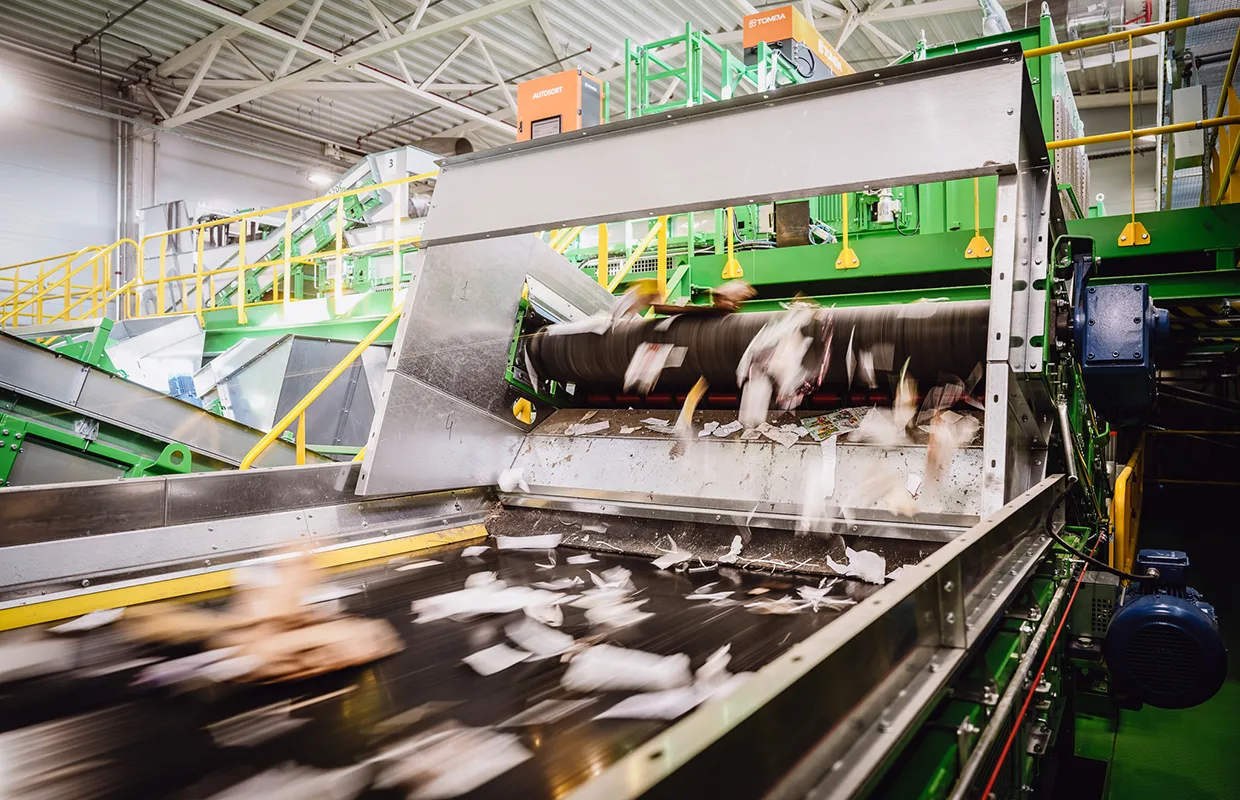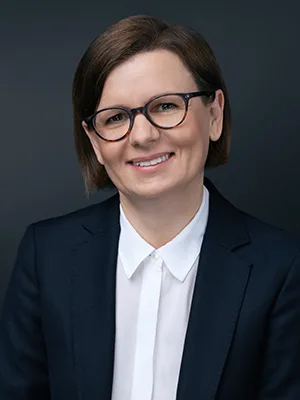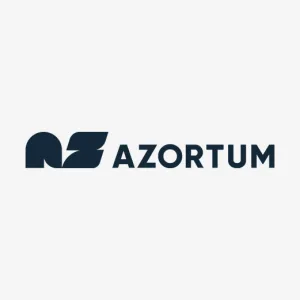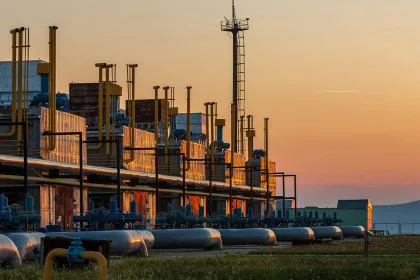Ecoservice is a leading waste management company in Lithuania undertaking collection, transportation, and processing of different waste, city cleaning, and street maintenance. We learn more from CEO, Jurgita Nacevičienė.
THE PINNACLE OF ENVIRONMENTAL SERVICE
As one of the most dynamic industries in Europe right now, the environmental services sector continues to evolve at pace.
Environmental regulations are getting stricter, particularly with the EU’s Circular Economy Action Plan and Green Deal commitments, which are pushing both companies and municipalities to rethink how waste is collected, sorted, and recycled.
Meanwhile, there is also strong momentum in digitalisation – with the growing implementation of artificial intelligence (AI), sensors, and data to optimise logistics, reduce carbon dioxide (CO2) emissions, and improve recycling rates.
Another clear trend is the ongoing shift from simple waste management to resource management – waste is increasingly seen not as a problem to be disposed of, but a resource to be recovered, recycled, and reintegrated into the economy.
“I worked in management roles across several sectors before joining Ecoservice, but what drew me to the waste management and environmental services industry was its tangible impact on society and the future,” introduces CEO, Jurgita Nacevičienė.
“Waste and resources are something every community deals with daily, and I was inspired by the opportunity to lead change in an industry that directly shapes sustainability.”
At Ecoservice, Nacevičienė expertly combines strategic leadership with a company mission that has a long-lasting positive effect on people, businesses, and the environment.
“Waste and resources are something every community deals with daily, and I was inspired by the opportunity to lead change in an industry that directly shapes sustainability”
Jurgita Nacevičienė, CEO, Ecoservice
THE PRIDE OF LITHUANIA
Today, Ecoservice is one of Lithuania’s leading environmental management companies and is part of the Eco Baltia Group, now boasting over 30 years of experience in the sector.
“We offer a comprehensive suite of services encompassing waste collection, recyclable materials management, green and garden waste collection, textile waste sorting, street and territory cleaning, and sanitary services such as mobile restrooms, washstands, container rentals, and cemetery maintenance,” Nacevičienė sets out.
The company operates nationwide across Lithuania and its client base spans hundreds of thousands of households in different municipalities, private businesses, and producers.
Constantly growing its capacity and scale, at present, approximately 7,500 tonnes of secondary raw materials are sorted and prepared for processing each month at its facilities.
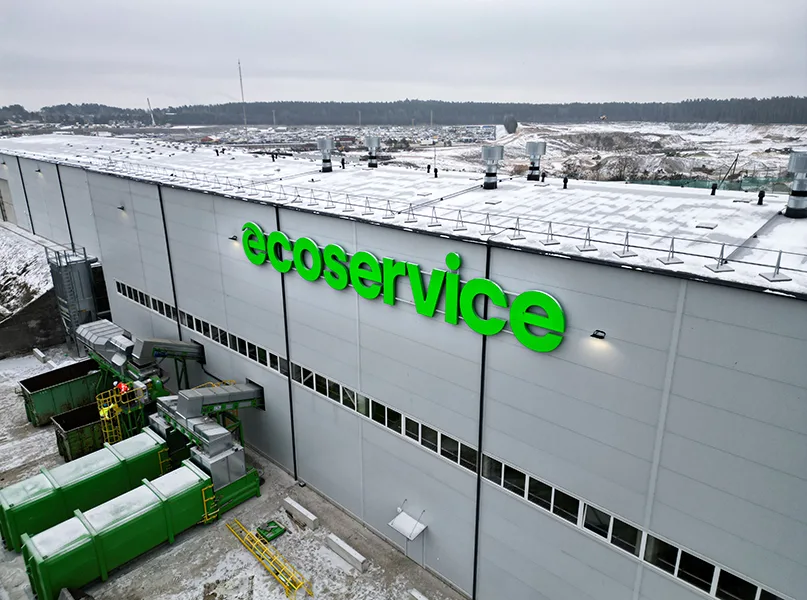
As such, with a team of over 1,200 people and leveraging a large fleet of more than 280 specialised vehicles, as well as modern sorting and infrastructure facilities, Ecoservice continues to move from strength to strength.
“Our operations depend on a wide network of suppliers and partners – from equipment manufacturers to recycling plants, IT providers, and logistics companies. Strong relationships are crucial because this industry is highly interconnected,” she continues.
For example, if there are bottlenecks in recycling capacity or equipment is delayed, it impacts Ecoservice’s ability to deliver results, making its suppliers even more critical.
“We work closely with our partners to share data, align goals, and co-invest in innovations that improve efficiency and sustainability across the supply chain.”
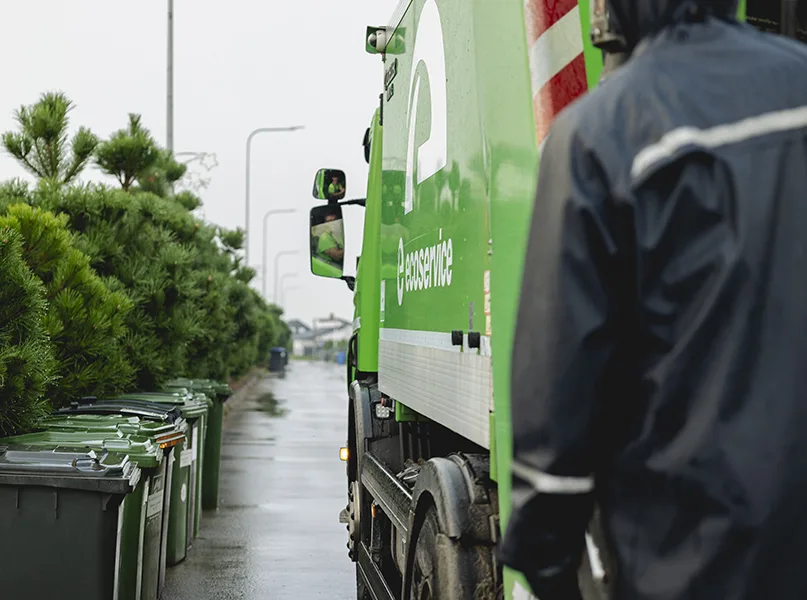
AUTOMATION AND DIGITALISATION
One project Ecoservice is particularly proud of is its ongoing investment in automated sorting facilities, which allows the company to increase recycling rates and lessen contamination in recyclable streams.
“Right now, we are also implementing digital solutions – such as route optimisation systems and sensor-based containers that help us reduce fuel use and CO2 emissions,” explains Nacevičienė.
In addition, Ecoservice is currently addressing one of the fastest-growing environmental challenges in Europe – textile waste.
Across Lithuania, as in many EU countries, large amounts of clothing and textiles are still landfilled or incinerated due to insufficient infrastructure for collection and recycling.
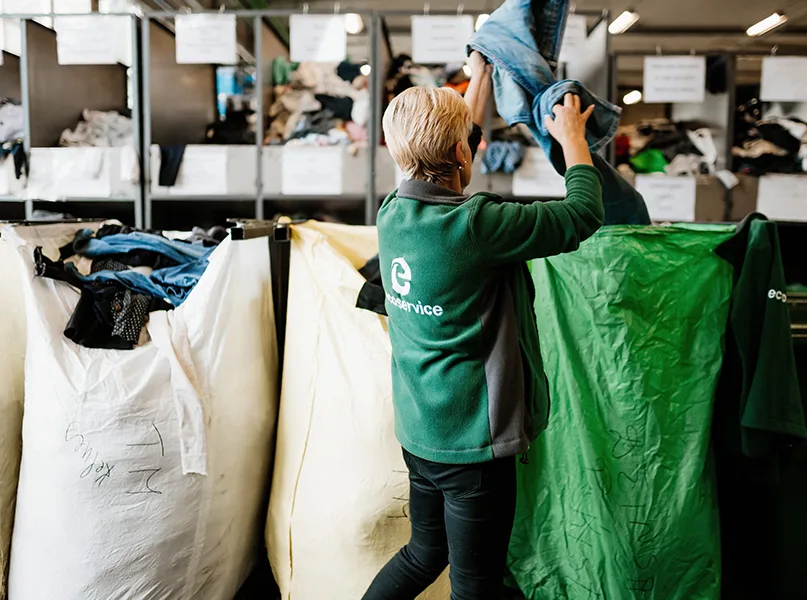
To tackle this issue, the company has invested in the renovation of a dedicated textile sorting warehouse.
“This facility allows us to collect, sort, and prepare textiles for reuse and recycling, keeping valuable materials in circulation and reducing environmental impact.
“At this stage, we are not yet carrying out recycling ourselves, but we are working with partners to identify the most effective and efficient solutions. We are also closely monitoring and participating in the European community’s efforts to find the most effective textile recycling methods,” Nacevičienė affirms.
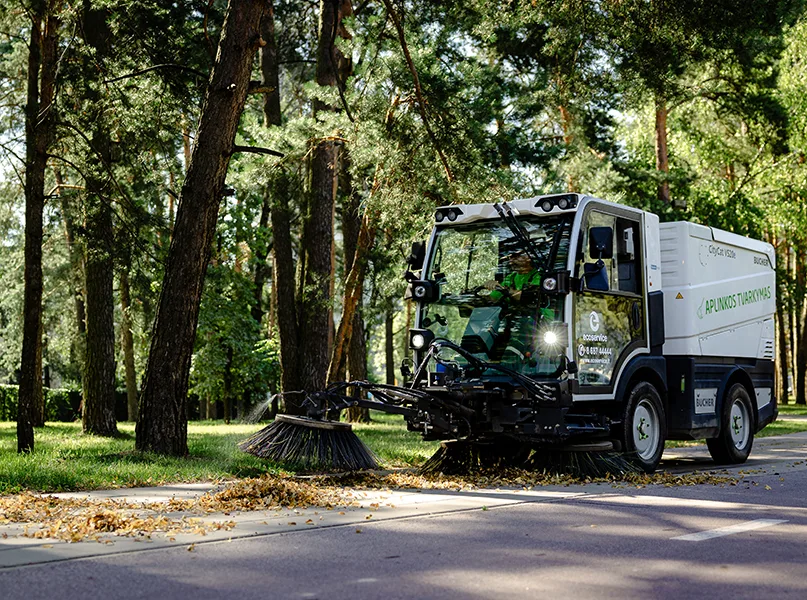
BACK FROM ADVERSITY
Another important milestone recently celebrated by Ecoservice is the reconstruction of its Vilnius sorting facility after a large fire shut it down two years ago.
“Instead of simply just rebuilding, we took the opportunity to create a more advanced, safer, and efficient centre that will serve as a benchmark for the region,” prides Nacevičienė.
“The fire was a very difficult moment for the company, but it also became a turning point.
“We treated it not just as a recovery project, but as an opportunity to redesign our operations for the future,” she recalls.
Determined to bounce back stronger than ever, Ecoservice invested in state-of-the-art fire prevention and safety systems, adopted new sorting technology, and improved process efficiency.
“Today, our new facility is stronger, more modern, and sustainable than ever before, and it has reinforced our resilience as a company.”
The facility is now one of the most modern waste sorting centres in the Baltic States.
“Today, our new facility is stronger, more modern, and sustainable than ever before, and it has reinforced our resilience as a company”
Jurgita Nacevičienė, CEO, Ecoservice
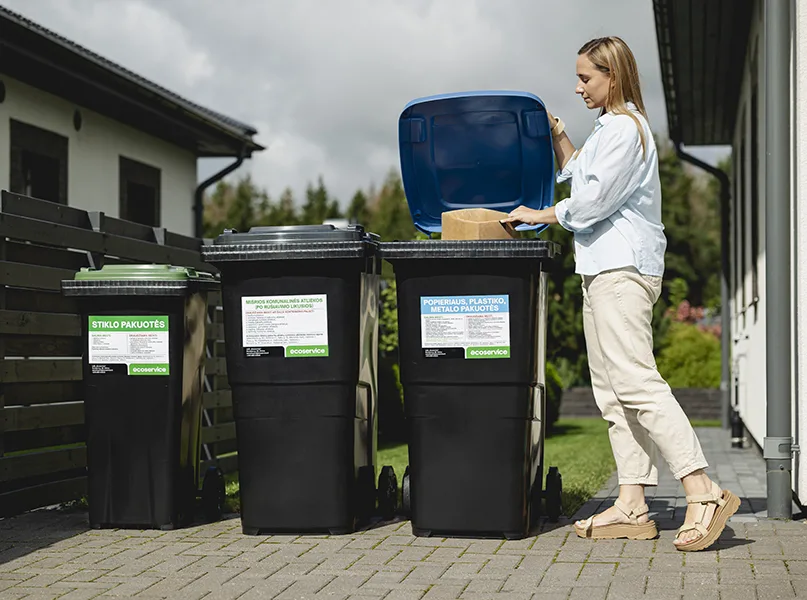
DEDICATED TO THE CAUSE
Moving forwards, two things stand out as crucial strategic pinpoints for Ecoservice – the key combination of innovation and responsibility.
“We invest heavily in modern technologies, both in vehicles and sorting facilities to ensure efficiency, safety, and sustainability. At the same time, we view ourselves as more than just a service provider,” Nacevičienė assures.
Indeed, the company sees itself as partners in building a circular economy in Lithuania, actively participating in policy discussions, pilot projects, and educational campaigns to raise awareness about recycling and sustainability.
An industry leader, corporate social responsibility (CSR) is also a large part of the organisation’s DNA.
Ecoservice regularly runs educational campaigns to encourage proper sorting and recycling, particularly targeting schools and local communities.
“We also support local initiatives that promote environmental awareness. In addition, our internal CSR includes strong safety programmes, employee well-being initiatives, and diversity policies,” she tells us.
“For us, responsibility means not only minimising environmental impact, but also actively creating positive social value,” she adds.
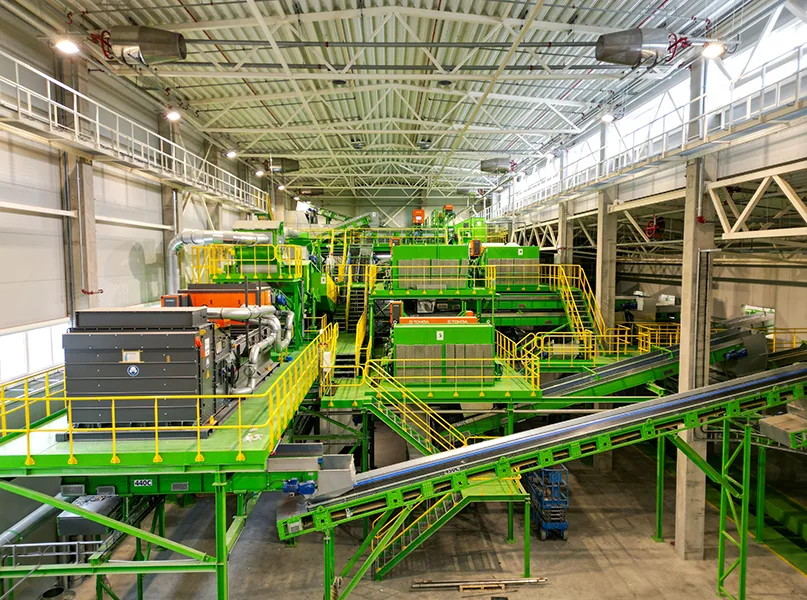
Elsewhere, signifying an exciting time for the company, it is also evaluating opportunities for regional partnerships and diversification into new sustainability-related services.
“We engage in public education activities by organising recyclable waste gathering events – we aim to remain socially responsible and always strive to contribute to talks and events for youth organisations and other institutions.”
This winning duality of technological leadership and social responsibility continues to set the company apart and points towards a bright future for both Ecoservice and the fate of the industry.
Nacevičienė is keen to emphasise that waste management can be found at the intersection of public service and private enterprise.
“Success in this sector requires collaboration between municipalities, businesses, regulators, and citizens.
“We see ourselves as a bridge between these stakeholders and believe that only by working together can we make the circular economy a reality,” she concludes optimistically.



